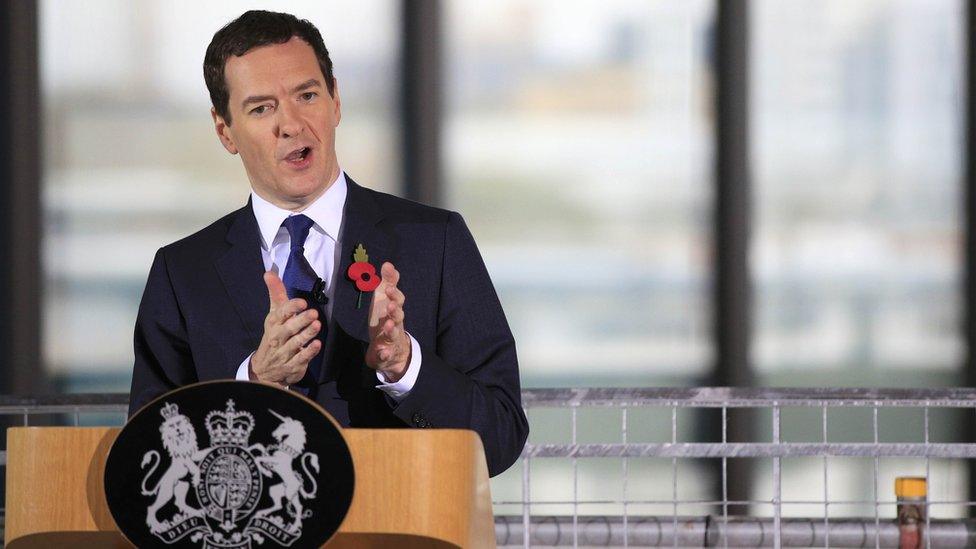Spending review - a big week ahead for the NHS
- Published

George Osborne has to balance the demands of the health service against the pleas from Whitehall's other big spenders
There's just a week to go until a policy announcement which could prove the most significant for the NHS in this Parliament.
Chancellor George Osborne will unveil the results of his spending review setting out, along with other departments, the path for the health budget. At a time of intense pressure on the health service, the Treasury's decision about future spending totals and the timing of increases will be critical.
If any reminder were needed about the creaking finances of NHS organisations in England, it came today with the latest survey of finance directors by the Healthcare Financial Management Association.
100% of respondents at hospitals (the acute trusts) expect to end the year in deficit, up from 77% four months ago. Two-thirds of all trusts (taking in other sectors, such as ambulance services and community health, as well as hospitals) now anticipate overspending this year. The response rate among these provider trusts was just over 50%.
Worryingly, for health ministers and the NHS leadership, a large majority of finance directors don't believe the ┬Ż22bn of efficiency savings set out in the Five Year Forward View are achievable on current plans and assumptions. 84% of respondents say they need extra financial support to deliver the required productivity gains. Perhaps unsurprisingly, they want the ┬Ż8bn of annual extra cash promised to the NHS in England by 2020 to be "frontloaded" - in other words, getting there sooner rather than later.
Looking longer term, the Health Foundation and Institute for Public Policy Research have chipped in with an analysis of the likely funding gap for health and social care over the coming years. Their report covers the UK and argues that even after the extra ┬Ż8bn promised for England by 2020, and the consequential increases under the usual formula for the devolved administrations, there will be a gap of ┬Ż2bn in health funding in that year. In essence the report says the efficiency savings hoped for will not materialise in full.
On adult social care, the two think tanks are more gloomy. They predict a potential funding gap of ┬Ż6bn in the UK by the 2020/21 year and that does not factor in the costs for care providers of implementing the mandatory . The authors conclude that despite the pressures the NHS should limp on, but there "must now be real doubts about the sustainability of the current financing system for adult social care".
Mr Stevens wants to see money frontloaded to help ease mounting pressures on over-stretched services
Heated debates are continuing in Whitehall as the clock ticks down to next week's big announcement. Simon Stevens, head of NHS England, is pressing for the frontloading of the ┬Ż8bn extra annual funding without strings attached. The Treasury will resist the idea that further conditions can be demanded when the government has already agreed to Mr Stevens' original call for the new money to reach ┬Ż8bn a year by 2020 on top of ┬Ż2bn extra for this year.
A Department of Health spokesperson said: "We are committed to the values of the NHS which is why we have invested ┬Ż10bn to fund the NHS's own plan for the future and spending as a proportion of government spend has increased in every year since 2010."
Mr Stevens knows this is the last chance to secure a financial settlement for the NHS for the rest of this parliament. He can hardly return to the Treasury in a couple of years time and admit to getting his sums wrong. For his part, George Osborne has to balance the demands of the health service against the pleas from Whitehall's other big spenders. It's a process which will go right to the wire.